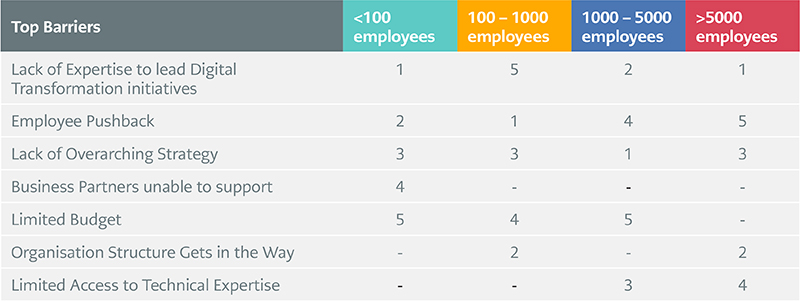Are We Still Facing the Same Digital Transformation Challenges in 2024?
The lack of expertise to lead digital is no longer an issue today, but we must understand that this is a global report, and it may apply to our local context

About two years ago, I came across a survey report conducted by Altimeter Group and sponsored by Jabil, a manufacturing solutions provider. The report includes a table of barriers to digital transformation, which are segregated into four groups based on the company size. I briefly summarised it here in order of priority that was anticipated then.
From that report, the top three barriers to digital transformation are lack of expertise to lead digital transformation initiatives, employee pushback, and lack of an overarching strategy.
I revisited that report to know if these barriers remain the same for 2024. While looking into it, I came across some interesting predictions made by other researchers for 2024. I, therefore, created a table to consolidate the information for better visualisation. Do note that I have adapted the table based on my understanding and not in order of priority.
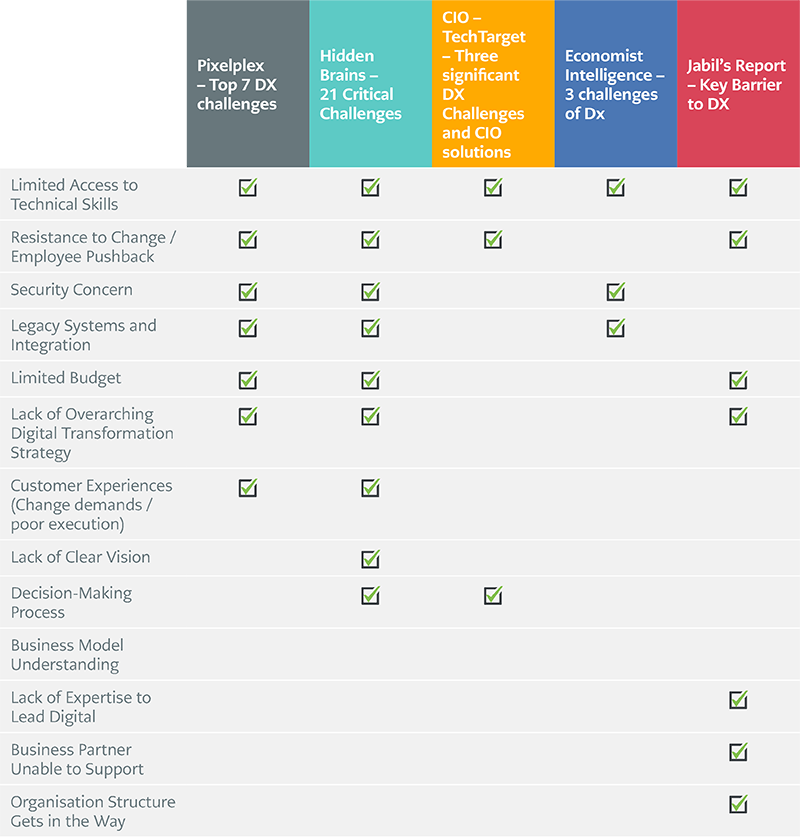
Ironically, the lack of expertise to lead digital is no longer an issue today. This is probably true, but we must understand that this is a global report and whether it applies to our local context.
Coincidently, I came across a prediction by Cisco's Managing Director, Hana Raja, stating that more companies in Malaysia are considering the adoption of AI.
However, the progress of infrastructure, data, governance, talent, and culture could potentially hinder the transformation of these companies. It is worth noting that talent and culture are not just local issues in Malaysia but are also prevalent in other regions.
Why am I not surprised? I have often heard that the scarcity of skilled talents is rising, and workers’ resistance to adapting to new changes is still an ongoing challenge.
Empowering Women on the Digital Front
First, let me touch on the women’s context. I have seen many ongoing efforts to make women more inclusive and sustainable in the recent social and economic development. However, in my point of view, there is a need for more initiatives to support women on the digital front.
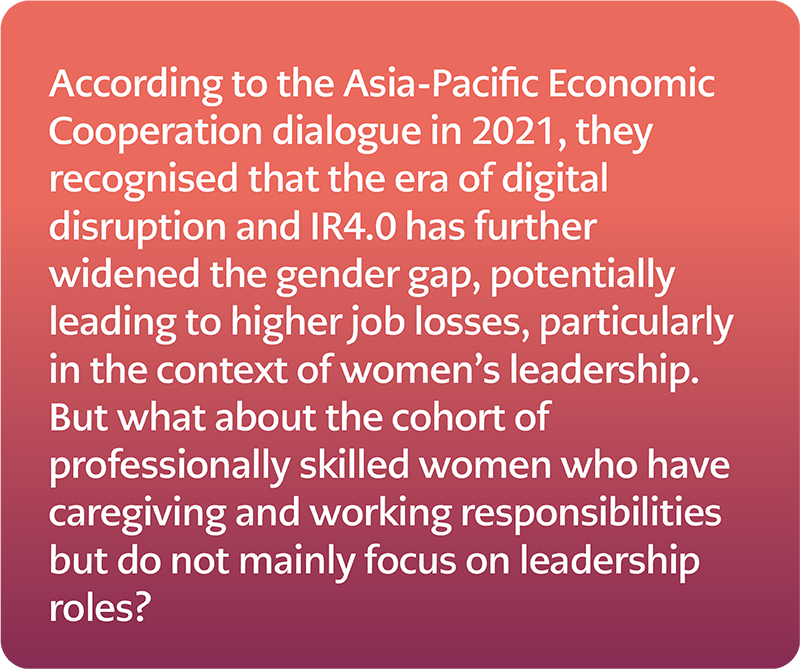

The top three reported digital transformation barriers are lack of expertise to lead digital transformation initiatives, employee pushback, and lack of an overarching strategy.
The Newer Generations
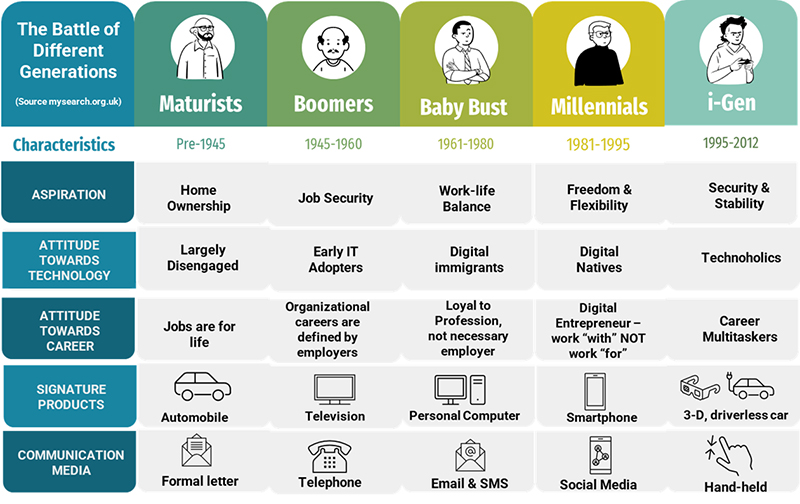
Scarcity of Skilled Talents
The revolution from the industrial age to digitalisation has made life much easier as we no longer face as many hardships as earlier generations. With the inception and adoption of more technologies, newer generations have become more digitally savvy. This mindset is reflected in millennials and the i-gen bucket. Millennials are the first generation to grow up with technology and are considered digital natives. They were educated using technology from a very young age and were the first to experience the widespread adoption of the internet.
Now, we see more of Generation Z, a technically savvy cohort, entering the workforce. Their exposure to technology has made these two latter generations more proficient with various tools and platforms. Hence, these have influenced them to be more entrepreneurial in their work.
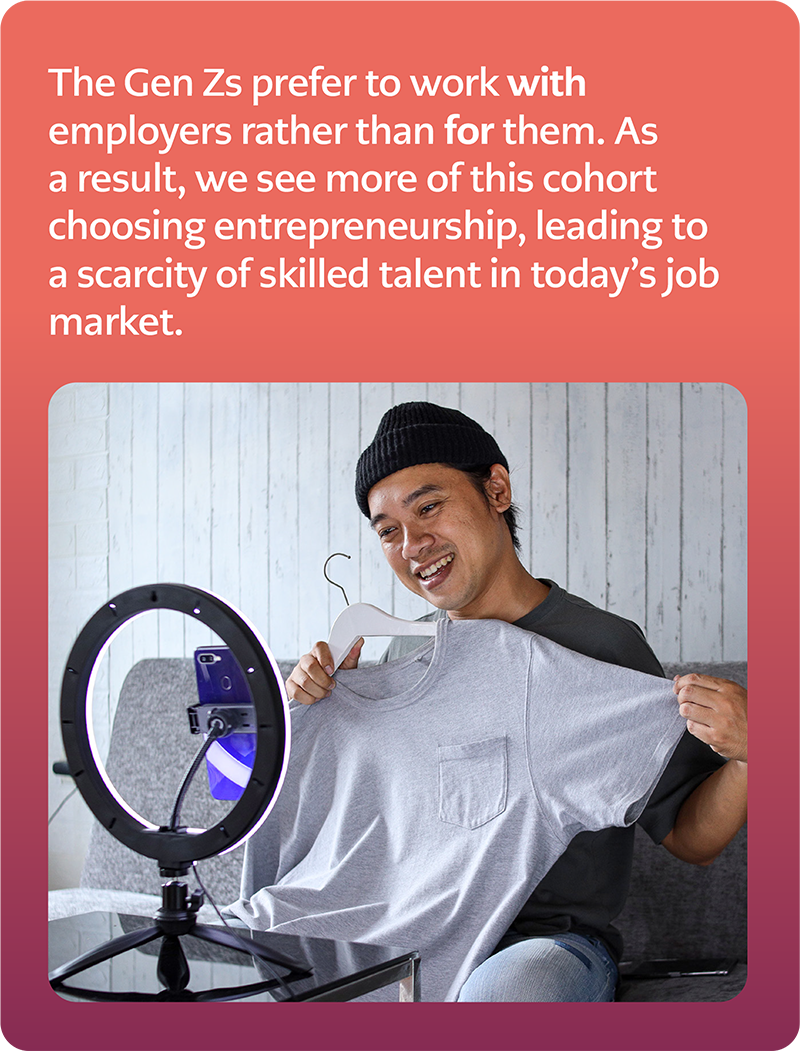
Adapting to Change
Today, we have a diverse mix of four generations in the workforce, and millennials make up a significant portion. I am not here to undermine the former generations. However, we must recognise that most of these individuals from earlier generations inherited a mindset that focuses on job security, loyalty, and career development.
While most of them were born and grew up before the advent of advanced technologies, do you know they are the cohort that experiences the development and advancement of technologies from different professional landscapes? Because of their experiences in diverse landscapes over the years, they have acquired a digital thinking mindset that can contribute to and embed technologies to improve a more comprehensive workplace.
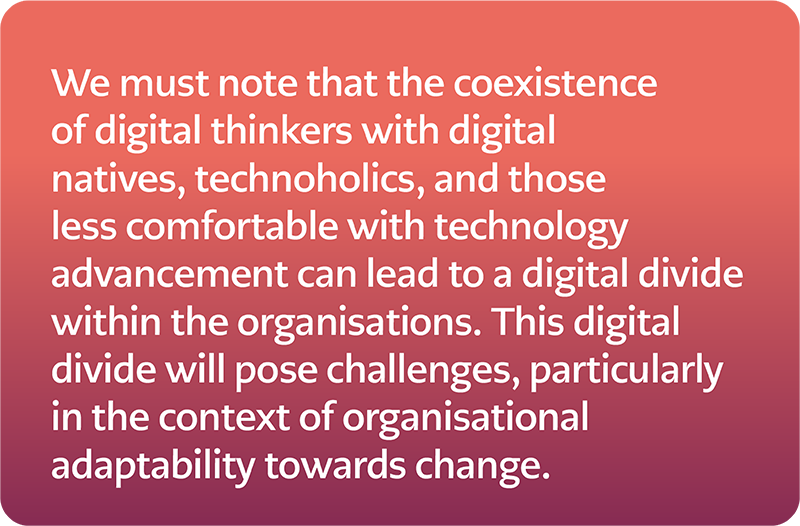

In conclusion, I am interested in knowing if women will remain an untapped market in the digital landscape. Should organisations consider alternative approaches and strategies to address the challenges of scarce skilled talent and digital barriers to achieve a successful digital transformation journey by 2024?

With the rise of technological use in our lives that eases our daily operational tasks, newer generations no longer have to face as many hardships as earlier generations.
About the Author

Elsie Low is the Consulting Director and Agile Coach for DXGIG@Valuelab, a Digital Transformation and Gig Economy Consulting and Coaching hub to help businesses and organisations bridge the gap and the digital divide. Elsie believes that digital transformation will impact the traditional way of work. Hence, she encourages organisations to set the pace for tomorrow by leading, thinking, and governing the digital transformation journey.

